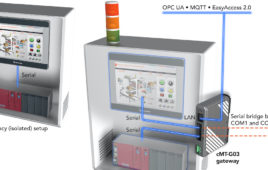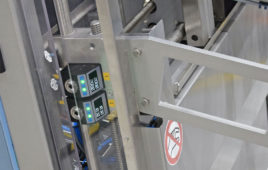Computer technology has transformed the way we live, but as consumers expect ever more from their devices at faster speeds, personal computers as well as larger electronic systems can overheat. This can cause them to slow down, or worse, completely shut down. Now researchers are reporting in the ACS journal Industrial & Engineering Chemistry Research that liquids containing nanoparticles could help devices stay cool and keep them running.
Rahman Saidur and colleagues point out that consumers demand a lot out of their gadgets. But that puts a huge strain on the tiny parts that whir away inside desktops and mainframe computers, which do the major data crunching for us. The result is overheating. Recent research has shown that substances called nanofluids have the potential to help keep electronics cool. They are made of metallic nanoparticles that have been added to a liquid, such as water. But there are many different kinds, and past research on their coolant abilities has been limited. To help sort through them, Saidur’s team set out to determine which ones might work best.
Using something called a microchannel heat sink to simulate the warm environment of working electronic systems, they analyzed three nanofluids for the traits that are important in an effective coolant. These include how well they transfer heat, how much energy they lose, the friction they cause and their pumping power. All three performed better than water as coolants with the nanofluid mixture of copper oxide and water topping them all.
The authors acknowledge funding from the Ministry of Education Malaysia.
The American Chemical Society is a nonprofit organization chartered by the U.S. Congress. With more than 161,000 members, ACS is the world’s largest scientific society and a global leader in providing access to chemistry-related research through its multiple databases, peer-reviewed journals and scientific conferences. Its main offices are in Washington, D.C., and Columbus, Ohio.
To automatically receive news releases from the American Chemical Society, contact [email protected]. For more information, visit www.acs.org.
Filed Under: M2M (machine to machine)




